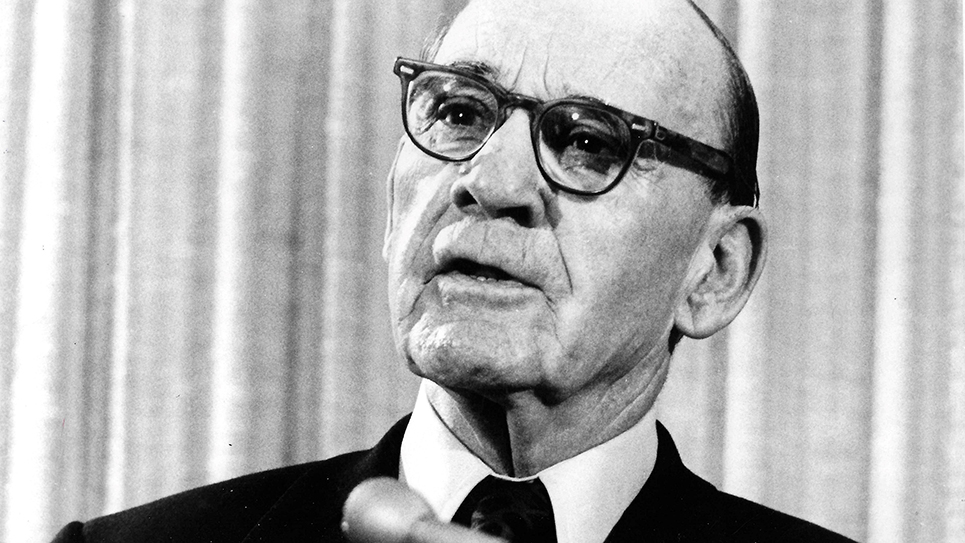By Dr. Jim Ferguson
The French have a term for feeling listless, weary or dissatisfied. Americans might say they have the blahs or the doldrums. Since English is an amalgam of many languages and cultures, the French word ennui is now part of our English lexicon.
I’m a stickler for words which are the tools we use to share our thoughts with others. We must have a lot to say because there are more words in the English language than any other. Though body language remains important, the words we choose allow nuanced communication.
Since this is a column in the “Health and Wellness” section, perhaps we should begin by defining health. Most would first elucidate one’s physical condition. But what about the sociological health of the culture in which the person lives? Understandably, the health of society affects the individual. What about mental health? Lately, we’ve heard a lot about the “mental health” of the Parkland murderer. Is mental illness a malady of the mind, “heart” or soul? Supreme Court Justice Potter once said he couldn’t define pornagraphy, but said, “I know it when I see it.” We should be more precise regarding health.
Some have ascribed heinous crimes to the work of evil. Sometimes, the otherwise inexplicable is best defined as the work of evil. I am sane, so I can’t imagine shooting up a school or a church. Sanity is defined as “health of mind.” But how is health of mind measured? Is it a comparison to others or some societal or institutional standard? Do you think hatred is a healthy state of mind? If not, we should question the sanity of Wolf Blitzer on CNN or Hollywood’s Barbra Streisand whose hatred of Donald Trump is pathological.
I am not a psychiatrist, but like other primary care physicians (PCP), depressed patients more often see me than a psychiatrist. As a result I frequently assess patients’ emotional as well their physical health. Fortunately, patients in Knoxville are not often challenged by the health of our community like those in the Syrian war zone. Nonetheless, many question the sanity of America’s civil war which rages around us.
A recent paper in JAMA Psychiatry found that 21% of Americans will become depressed in their lifetime. Unfortunately, other studies show that the diagnosis is often overlooked by PCPs. Perhaps this is a recognition issue or because doctors no longer have the time to spend with patients. Perhaps physician extenders have less training and experience than medical doctors.
I don’t believe the diagnostic criteria for depression is at fault. Ennui is not clinical depression. Depression is far more than weariness or boredom. For years I’ve used the mnemonic SIGECAPS in the diagnosis of depression. The S stands for sadness and the I for loss of interest. Often, people with depression feel guilty or down on themselves, and the loss of energy is an important clue. Depressed patients often have difficulty concentrating and sometimes lose weight through lack of appetite. P is the domain that alludes to psychomotor agitation (anxiety) or retardation (listlessness). The last S stands for sleep problems or more importantly suicide thoughts. Obviously, more symptoms lead to greater suspicion of depression.
There are many medical conditions that produce depressive symptoms including hypothyroidism or diseases of the adrenal gland. Other causes include cancer, kidney disease, autoimmune diseases and many others best evaluated by your doctor. For a PCP it is crucial to recognize delusional thinking or hallucinations, which are symptoms of psychosis and best handled by a psychiatrist. Similarly, suicide ideation and manic depression with racing thoughts, risky behavior and inappropriate animation should be handled by a psychiatrist.
Recently, antidepressants were shown to be very helpful in a large study published in the Lancet medical journal. These drugs are not habit forming and work best in situations where there is no obvious cause for depressive symptoms. The theory (mechanism) by which antidepressants work is by modulating imbalanced neurochemicals in the brain. Serotonin is one of the many brain neurotransmitters which can be augmented by medications such as Prozac to reestablish balance. Many experts also recommend concomitant counseling which helps patients organize their thoughts and feelings. Verbalizing feelings helps as a catharsis for the psyche.
I am not a psychiatrist, but I have considerable experience treating patients with depression which often occurs as a one time event. Unfortunately, recurrent episodes of depression predict further relapse and may necessitate long-term therapy because with each episode of depression there is a substantial risk of suicide as a result of hopelessness.
There remains another domain of human function which science does not usually address. That domain is spiritual health. Increasingly, studies have shown that many people mark “none” regarding religious affiliation or “done” with religion. Existentialism is a philosophy which describes the self as existing in an impersonal and unknowable and seemingly capricious universe. Some may argue this perspective from the position of intellectual honesty because there is no absolute proof of God. However, psychologist and atheist William James acknowledged there is no incontrovertible proof that God does not exist and the rational man is free to choose whichever perspective works best for him. I plan to someday ask the pragmatist James and the existentialist Sartre, why they chose to be alone and at odds with the Cosmos. What hubris must resonate in the heart of the seemingly Godless, Joy Behar. Recall that hubris was the ultimate sin for ancient Greeks and exists even today.
A thousand years before Christ the Psalmist sang, “We are fearfully and wondrously made” – though we are far from perfect. In the fourth century BC, Aristotle argued that something cannot come from nothing. We call this causality. (Yet, scientists today argue that the universe occurred from nothing.) Paul, around 55 AD argued that even non believers see the majesty of creation – and its author. Increasingly, modern man has chosen science over God. (Why not embrace both?) Modern man has also chosen power, politics, money, self gratification and the accolades of others over God. Then he wonders why we exist in a broken land, in existential freefall, experiencing ennui and worse. This must be a rhetorical question.






